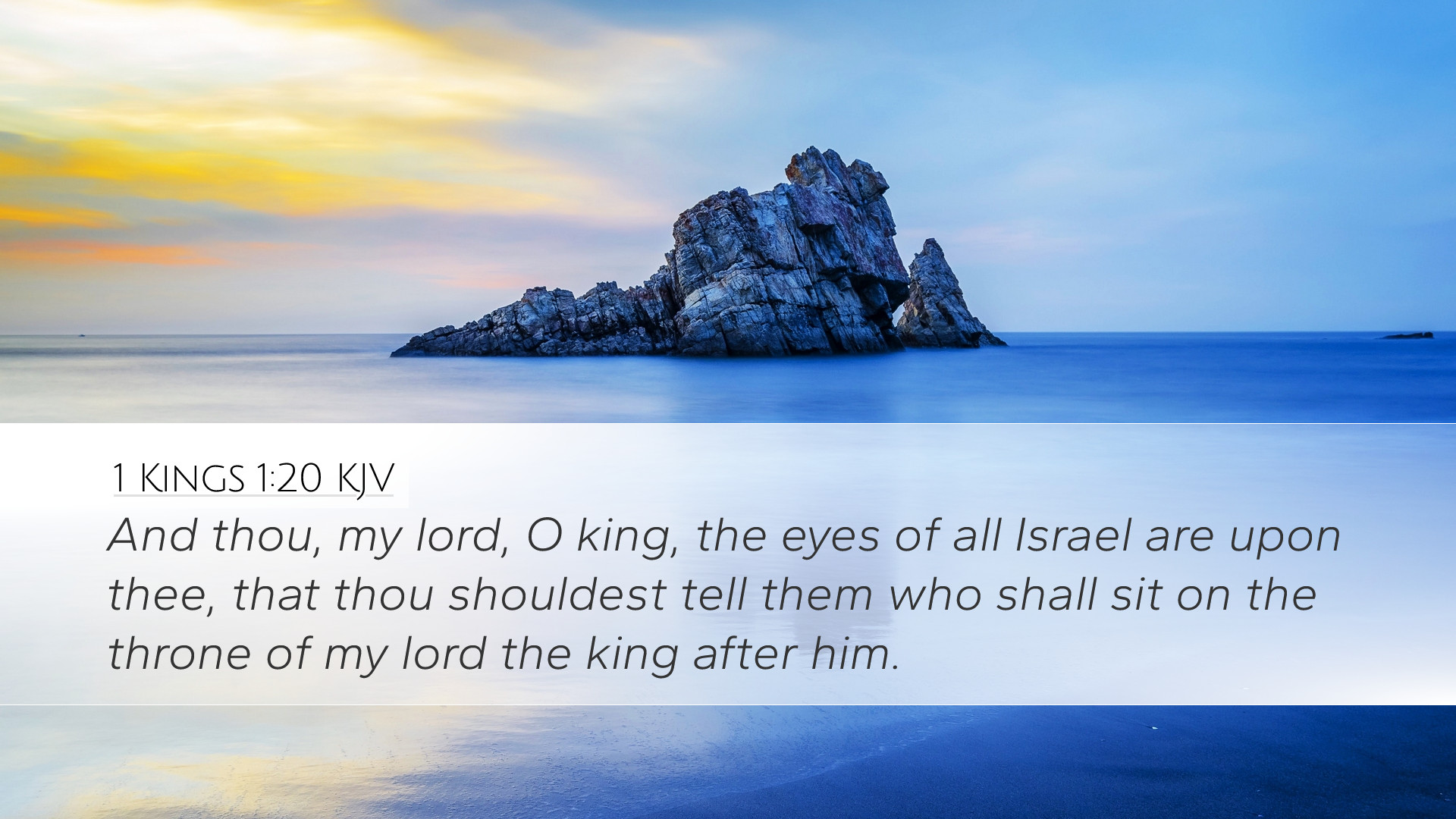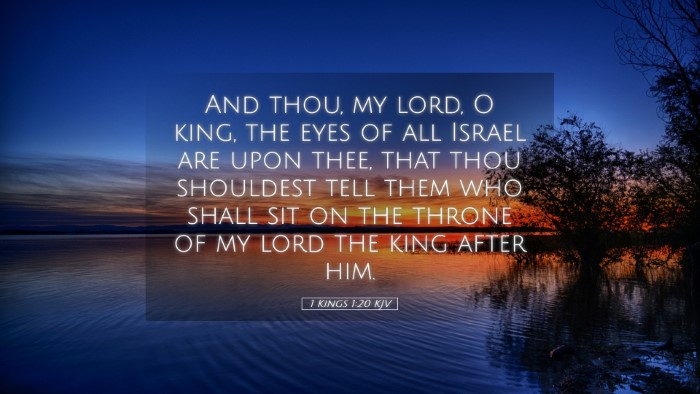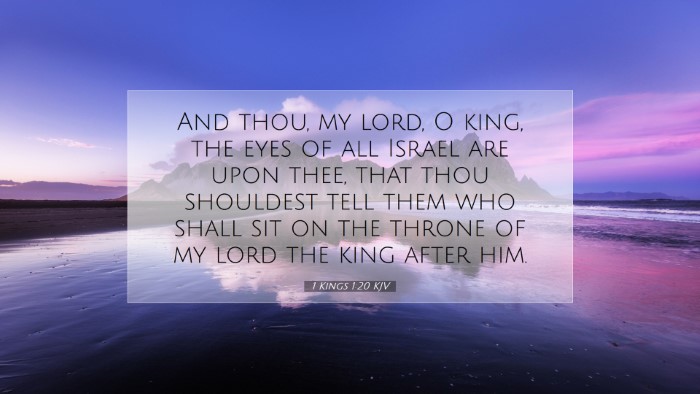Commentary on 1 Kings 1:20
Scripture Text: "And thou, my lord, O king, the eyes of all Israel are upon thee, that thou shouldest tell them who shall sit on the throne of my lord the king after him."
Introduction
The verse captures the tension and anticipation in the transition of leadership in Israel, as it highlights the importance of Solomon's ascension to the throne following King David’s elder years. A multi-faceted analysis reveals its theological, historical, and personal dimensions crucial for understanding the narrative at this juncture of biblical history.
The Context of 1 Kings 1
The verses preceding 1 Kings 1:20 set the stage for the rivalry and political intrigue surrounding the end of King David’s reign. Balancing between ambitious figures such as Adonijah and the chosen successor Solomon, this context is essential to grasp the deep implications of verse 20. The impending change in leadership not only impacts the nation’s future but also reflects on divine providence as God’s sovereignty manifests through human decisions.
Insights from Matthew Henry
Matthew Henry emphasizes the significance of Solomon’s succession as being aligned with God’s covenant promises. He notes that the mention of the eyes of all Israel indicates a readiness among the people to receive divine appointment:
- Divine Sovereignty: Henry points out that though human selections existed, it was God's providence that determined Solomon’s place on the throne. The public awareness reflects the theocratic nature of Israel’s governance.
- Leadership and Responsibility: The urgency in Bathsheba’s plea illustrates the weight of responsibility placed upon the king. Leaders are chosen not only for their title but for their capacity to lead with wisdom and integrity.
Insights from Albert Barnes
Albert Barnes’ commentary delves into the political realities of the situation, analyzing the implications of David's choice:
- Public Expectation: Barnes would argue that Israel's expectation of a clear declaration of succession showcases the democratic aspects of Old Testament governance contrasted with God’s theocratic sovereignty.
- The Role of Advisers: He notes the influence of Bathsheba and Nathan and how their actions shape royal decisions. Their roles remind us of the critical nature of counsel in leadership.
Insights from Adam Clarke
Adam Clarke offers a detailed analysis that includes a cultural and linguistic perspective on the text:
- Cultural Norms: Clarke elucidates the expectations of kingship in ancient Israel, stressing how vital the royal lineage was for stability. The public's gaze upon David emphasizes a collective desire for continuity and divine guidance.
- Interpretation of "Eyes of all Israel": He highlights that this phrase indicates more than mere observation; it entails deep hope and expectation regarding the continuity of leadership ordained by God.
Theological Implications
This verse reminds us that leadership in God’s kingdom is not solely a matter of political maneuvering but deeply rooted in divine will. The expectation from the people serves as a reflection of their faith and reliance on God’s guidance in leadership.
God’s Sovereignty
The verse exemplifies that while human actions play a role in leadership transitions, it is ultimately God who determines the leader's heart and position. Just as God chose David over Saul, He has chosen Solomon, indicating His continued guidance over Israel.
The Importance of Succession Planning
From a pastoral perspective, this verse offers critical lessons on preparing successors within church leadership and organizational settings. The clarity provided by David in naming Solomon demonstrates the importance of instilling confidence in future leaders.
Conclusion
1 Kings 1:20 serves as a pivotal reminder of the intertwining of divine providence and human agency. The insights gathered from Matthew Henry, Albert Barnes, and Adam Clarke weave a rich tapestry of meaning that resonates with the themes of leadership, responsibility, and community expectation. As pastors, students, and scholars engage with this text, they are called to reflect on the nature of their leadership, the expectations of those they serve, and the overarching sovereignty of God in guiding His people through times of transition.


